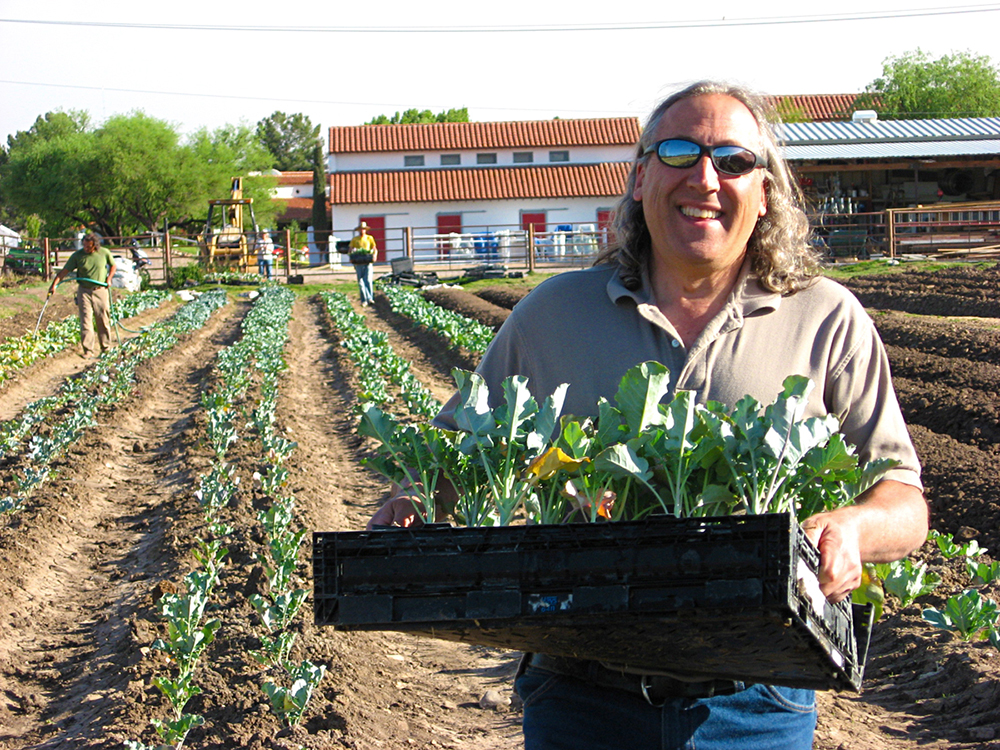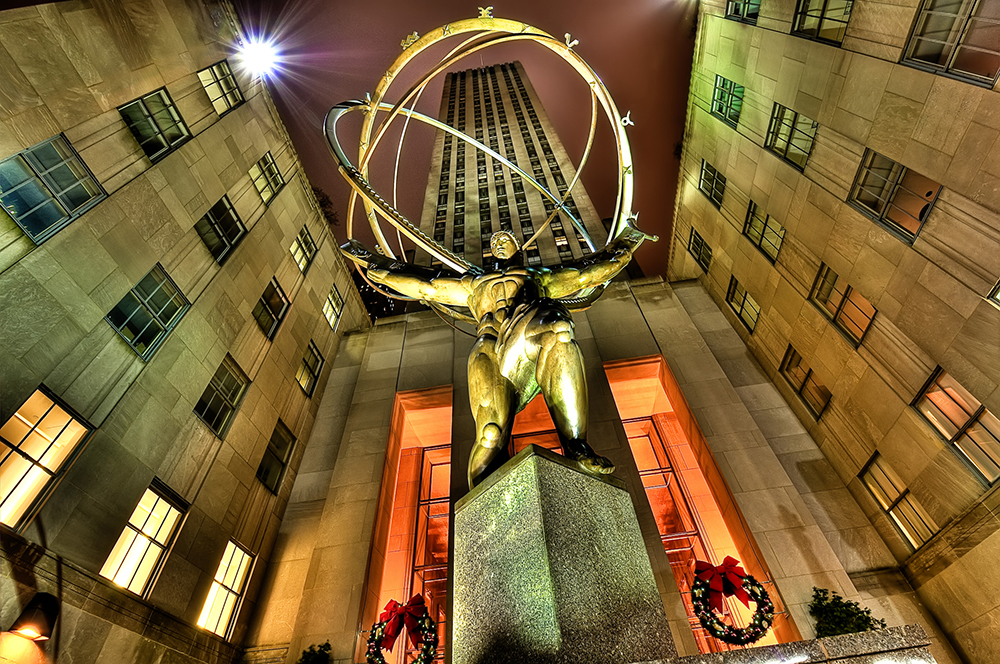A popular book of our time is Atlas Shrugged by Ayn Rand. In her book, Ms. Rand argues persuasively that the pursuit of individual happiness should be an end in itself and, moreover, that the individual has a moral right to live for him- or herself and to resist the pressure of society to live altruistically. She further examines the epic struggle between those who are innovative and industrious and those who would, either through shame or force, extract an unfair living from these innovative and industrious citizens.
In this way Atlas Shrugged may provide the perfect defense for pure capitalism in which everyone pursues only that which is in their own personal self-interest. The idea being that this will free up and reward the most productive members of society and that innovation and beneficial inventions of all sorts will be the inevitable result.
In his classic work The Wealth of Nations, Adam Smith referred to this concept as “The Invisible Hand of the Market” to express the idea that individual ambition benefits society, even if that is not the intention. There are few industries that embrace these two works more enthusiastically then do Wall Street.
Freshly out of college, believing I had few options and faced with the necessity of supporting myself, I went where the jobs were. Having a gift for gab and a fascination for numbers, the corporate recruiters believed I would make good on their investment in training and apprenticeship. And thus in the spring of 1983 I began my career as a newly “minted” Stock Broker for Dean Witter Reynolds in the San Francisco Bay Area.
The culture of “The Street,” as the business is known in the industry, was summed up succinctly by my first manager: “We are here to make money.” And make money we did. The whole firm seemed to run like a well-oiled machine; there was remarkable cooperation amongst the various departments and offices, including outside vendors who were there to assist us in marketing their financial products. It was said in this business that “The Salesman was King.” And it seemed to be true. Even those in the highest ranks of management would acquiesce to the top salespeople, who were nonchalantly referred to as the “Big Hitters.”
The office environment felt like a large extended family. Everyone was friendly and supportive, and people would often socialize together after work by having a beer or playing a round of golf. The office manager explained we were a team, all there to pull in the same direction. What I realized later of course was his philosophy was grounded in the simple fact that a significant percentage of his earnings were directly tied into the profit the office generated. This was also true of the layers of management above him and included the outside vendors who were frequent visitors, always extending friendly assistance in whatever way would be helpful.
 Playing flute in Van of Urantia's Bright & Morning Star Band (Photo by Global Change Media)
Playing flute in Van of Urantia's Bright & Morning Star Band (Photo by Global Change Media)
One Friday afternoon, without warning or notice, two veteran brokers abruptly resigned. They had been recruited and had been given a large signing bonus by a competitor.
The markets closed at 1:00 PM west-coast time, so on Fridays the brokers generally headed for the door for an early weekend. We would joke that we were members of the 101 club, meaning that at 1:01 PM on Fridays we would be on the elevator heading for a golf game or other recreational pleasures for the weekend.
Not so this Friday. I looked around the office and was curious why everyone was still there. It was as if they had all suddenly rediscovered a newfound diligence to remain at work through the afternoon.
A short time later the manager called everyone into the conference room. There in many neat piles lay stacks of thick blue card-stock papers. These were the copies of the account records of all the clients these veteran brokers had developed over their years of service. Repeating a ritual that was familiar to all but myself, the manager quickly passed out the accounts of the former brokers. There was a definite protocol and pecking order to how these were distributed, with the larger producing brokers, the “Big Hitters,” receiving preferential treatment.
After the “pass out” was completed, there was almost a stampede out of the conference room. Not to head for the elevators and onto a drink or round of golf, but rather back to their desks to begin a frantic effort to persuade these customers to remain with the firm and realign their business to their newly appointed brokers. The feeding frenzy had begun.
I remember being struck by the fact that these two brokers had been on such friendly relations with their coworkers and managers, but now that they were gone all remnants of friendship were shredded in the wake of seeking to retain the potential business of their clients. You might say I lost my naiveté and innocence that day as I too joined in the rush without regard for my former colleagues.
A few years later it was my turn to abruptly resign. The manager had promised me a large percentage of clients from a thirty-year veteran who was retiring, and the manager had used this incentive as a “carrot” to induce me to work harder and longer hours to increase the total revenue to the office.
When the thirty-year veteran finally did retire, the manager broke his promise and showed favoritism to members of the office who had not been as productive as I. Feeling betrayed I followed up on a recruiting appointment a friend had arranged with a competing firm.
 Photo by Global Change Media
Photo by Global Change Media
Of course, no sooner had I joined the new company, but my clientele became the object of the same feeding frenzy I had participated in years earlier. And although this was not unexpected, it was still a shock to discover that my former colleagues had immediately become my adversaries.
As the years continued, I began to notice a gradual shift in how we were paid. There were certain financial products that provided a more generous compensation than others, which we all assumed also generated a greater compensation to the company. We used to joke regarding these financial products that “the broker made more money, the office made more money, the firm made more money, and the customer made….well uh.. three out of four ain’t bad is it?” It seemed there had been a subtle transformation across the entire industry to push investment products that made more money for the industry but provided a lower potential return to the customer.
Because of the extensive regulation of the brokerage business, every company was required to maintain their own internal “office of compliance.” My new manager made a point of telling me we had a “squeaky-clean” compliance department full of diligent employees who made it their business that we “complied” with all the complicated securities regulations.
Within a year of joining the firm they went bankrupt. The top executives had looted the company’s assets. Most of the company was owned by the employees, and many lost their life- savings as the shares of the company suddenly became worthless. I was struck by the irony of how the company’s directors had kept up appearances with their “squeaky-clean” compliance department, but at the top they were all rotten to the core.
The firm was quickly absorbed into another large company as a part of an asset sale, and I found myself at the same desk but working for another firm. The new management took over and, in order to increase the likelihood of a smooth transition, intimated to the existing managers that if they did their best to assist the new owners that there would be a position waiting for them after the merger was completed.
You can imagine what happened next. Once the merger was completed, the new team conveniently forgot their implied promises of future employment and, having secured the smooth transition they had sought from the prior team, quickly and summarily eliminated all the managers from the acquired company.
Having shared a bit of my own personal experience in the Wall Street culture, I would like to further explore the idea of the profit motive, in that it not only underlies the culture of “The Street” but is also a foundational concept for both Ayn Rand’s Atlas Shrugged and Adam Smith’s The Wealth of Nations.
The URANTIA Book has this to say:
Present-day profit-motivated economics is doomed unless profit motives can be augmented by service motives. Ruthless competition based on narrow-minded self-interest is ultimately destructive of even those things, which it seeks to maintain. Exclusive and self-serving profit motivation is incompatible with Christian ideals—much more incompatible with the teachings of Jesus.
In economics, profit motivation is to service motivation what fear is to love in religion. But the profit motive must not be suddenly destroyed or removed; it keeps many otherwise slothful mortals hard at work. It is not necessary, however, that this social energy arouser be forever selfish in its objectives.
The profit motive of economic activities is altogether base and wholly unworthy of an advanced order of society; nevertheless, it is an indispensable factor throughout the earlier phases of civilization. Profit motivation must not be taken away from men until they have firmly possessed themselves of superior types of nonprofit motives for economic striving and social serving—the transcendent urges of superlative wisdom, intriguing brotherhood, and excellency of spiritual attainment. (Paper 71, Section 6, Paragraph 3)
This last sentence is most captivating. Could it be this section provides the antithesis of Ayn Rand’s self-focused philosophy? In other words, rather than taking the position that we are in the world only to live life for ourselves The URANTIA Book suggests these “nonprofit” motives are in fact superior. How can this be?
To begin with, simply by examining the environment we live in we quickly realize we all share the same air and water, and ultimately the same means to produce the food we eat. It does not take great insight to understand that one person’s selfish “pursuit of happiness” that results in polluting the air is going to negatively affect everyone else’s “pursuit of happiness” because their health and well-being will be adversely affected.
The classic story from England of the “Tragedy of the Commons” illustrates the point well. The commons were lands that could be grazed by anyone, but since the incentive was based on gaining the greatest short-term benefit for oneself, the tendency was to overgraze the land—thus degrading it and ultimately destroying its grazing value for everyone. It seems most of the world has gotten lost into this type of thinking—whereby I will grab mine while I can—and not considering the consequences for anyone else. Multiply this type of behavior by seven billion people, and you can see our planet is in BIG trouble.
 Photo by Global Change Media
Photo by Global Change Media
The profit motive and the underlying reality of capital formation is not wholly a negative force in the world of course. The vast systems of railroads and other large private projects would likely not have been completed without it. Unfortunately, in recent times, the emphasis has shifted from raising funds that could arguably be conceived of as assisting the overall public good, to simply generating profits without any regard for any productive result for the benefit of anyone, save the small group of partners and co-workers who will share in the spoils of the economic enterprises. And as The URANTIA Book reminded us above: “Ruthless competition based on narrow-minded self-interest is ultimately destructive of even those things which it seeks to maintain.”
Setting aside for the moment the purely altruistic approach to solving the world’s problems, which Ayn Rand so passionately rails against, there is another (one could call it a purely selfish) motive for wanting to serve others—it is, quite simply, the most personally satisfying approach to life.
I am blessed to be a father and anyone who has raised a child knows that you receive a lot more personal pleasure sharing your triple fudge chunk ice cream cone with your toddler than if you ate it all by yourself. And likewise, investing in the welfare and benefit of others will ultimately lead to a more satisfying life than if we solely focus on benefiting ourselves.
This is in fact how the Creator set it all up. When we can see all of humanity as our true extended family, then everyone will naturally work for (and receive deep satisfaction from) serving their fellow family members.
There is indeed an “Invisible Hand” present, not of the market place, but of the Creator who desires His great family of humankind to work in harmony and for each others’ mutual benefit. And as we align our wills with the will of the Universal Father, He can then assist us in finding our right livelihood.
After eleven years on “The Street” I had had enough. But what was I to do? Having been trained in nothing else, I was again faced with the necessity of supporting myself. I went through a series of value-clarification exercises and made a straightforward decision, my next career would be built upon a foundation of finding satisfying work with people I respected and trusted rather than making money.
My desire for finding a higher pursuit in life provided an opening for the “Invisible Hand” of the Universal Father to open a new door for me. Looking up an old friend, I was led to the remarkable spiritual community of Global Community Communications Alliance. Now, seventeen years later, I work full time for this non-profit that fully embraces “. . . the transcendent urges of superlative wisdom, intriguing brotherhood, and excellency of spiritual attainment.”
Among other pursuits, I have found a way to use the skills learned on “The Street” in order to inspire support for our higher mission. And indeed there is a level of satisfaction in serving a cause greater than oneself that cannot be achieved in any other way.
This community has embraced many of the ideas E. F. Schumacher introduces in his renowned work Small Is Beautiful: Economics As If People Mattered, and through our organization we demonstrate daily that small is possible, and indeed beautiful when within divine administration principles.
How can this all be implemented on a practical world-wide level? Consider one simple example. The cost to produce one M1 Abrams tank (the standard of the US Army) costs about $4 million dollars. The cost to produce a solid 100+ horse-power tractor runs about $40,000. This means for the same money we could either produce one tank or one-hundred tractors. Once the tank is built it serves no productive purpose, where one-hundred tractors will generate all kinds of economic activity for years to come. Imagine how empowered the world would be if we “broke our swords into plowshares” by redirecting some of the money spent on armaments into small scale agriculture.
The challenge I see for the world today, and one that I have dedicated my life to is this: Can the world transform itself into the interdependent Eco-Conscious working villages that Schumacher envisioned, with all of the world’s peoples cooperating and united under the banner of the Father-/Motherhood of God and brother-/sisterhood of humankind? With faith, a spirit of cooperation, and an undying trust in our Creator/Father we can, and if we are to survive as a human species we must.

 Photo by Francisco Diez
Photo by Francisco Diez 